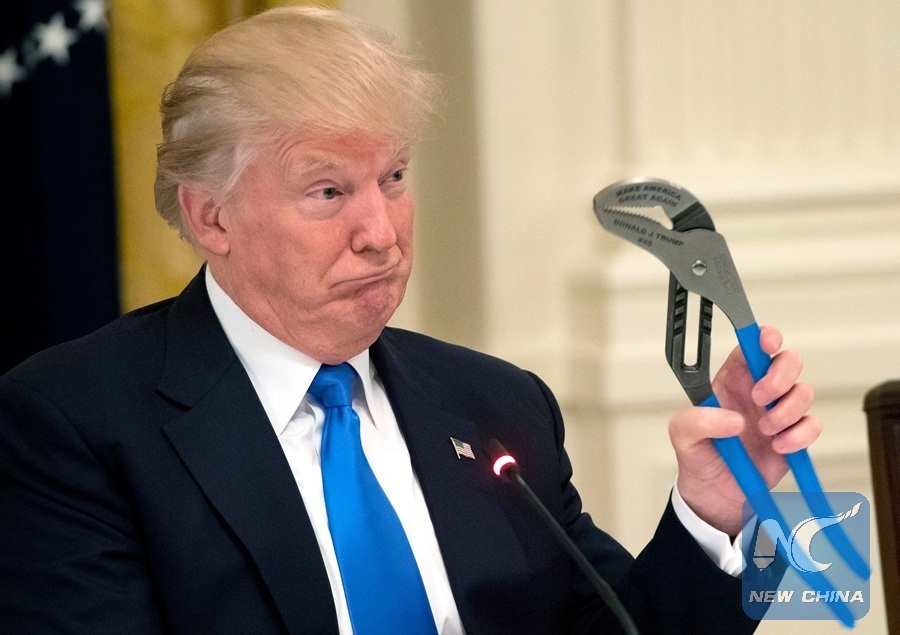
In this file photo taken on July 19, 2017, U.S. President Donald Trump holds up a pair of pliers as he speaks during a Made in America event with U.S. manufacturers in the East Room of the White House in Washington, DC. (Xinhua/AFP PHOTO)
WASHINGTON, July 18 (Xinhua) -- Manufacturers across the United States have expressed heightened concerns that the Trump administration's new tariffs would raise prices and disrupt the supply chains, according to a Federal Reserve survey released on Wednesday.
"Manufacturers in all Districts expressed concern about tariffs and in many Districts reported higher prices and supply disruptions that they attributed to the new trade policies," said the Fed in its latest survey on economic conditions, known as the Beige Book, based on information collected through July 9.
In the Philadelphia Fed district, "one machinery manufacturer noted that the effects of the steel tariffs have been chaotic to its supply chain - disrupting planned orders, increasing prices, and prompting some panic buying," the survey showed.
In the Richmond Fed district, a can manufacturer said "he could not get the quality of steel needed domestically and anticipated losing business to foreign competitors who are not faced with steel tariffs", according to the survey.
The Trump administration has imposed high tariffs on imported steel and aluminum products on the grounds of national security, provoking strong opposition from the domestic business community and retaliatory measures from U.S. trading partners.
"If this process leads to a world of higher tariffs on a wide range of goods and services that are traded, and those are sustained for longer period of time...that will be bad for our economy," Federal Reserve Chairman Jerome Powell told members of the House Financial Services Committee on Wednesday.
During a hearing before the Senate Banking Committee on Tuesday, Powell said concerns about the Trump administration's trade policy "may well" have an impact on U.S. wages and capital expenditures, though it hasn't shown up in the numbers yet.
"We've heard a rising chorus of concern which now begins to speak of actual capex plans being put on ice for the time being," he said.
But Powell believed it was too early to say how trade policy would influence the Fed's monetary policy as it is "difficult to predict" the ultimate outcome of current discussions over trade policy as well as the size and timing of the economic effects of the fiscal stimulus.

